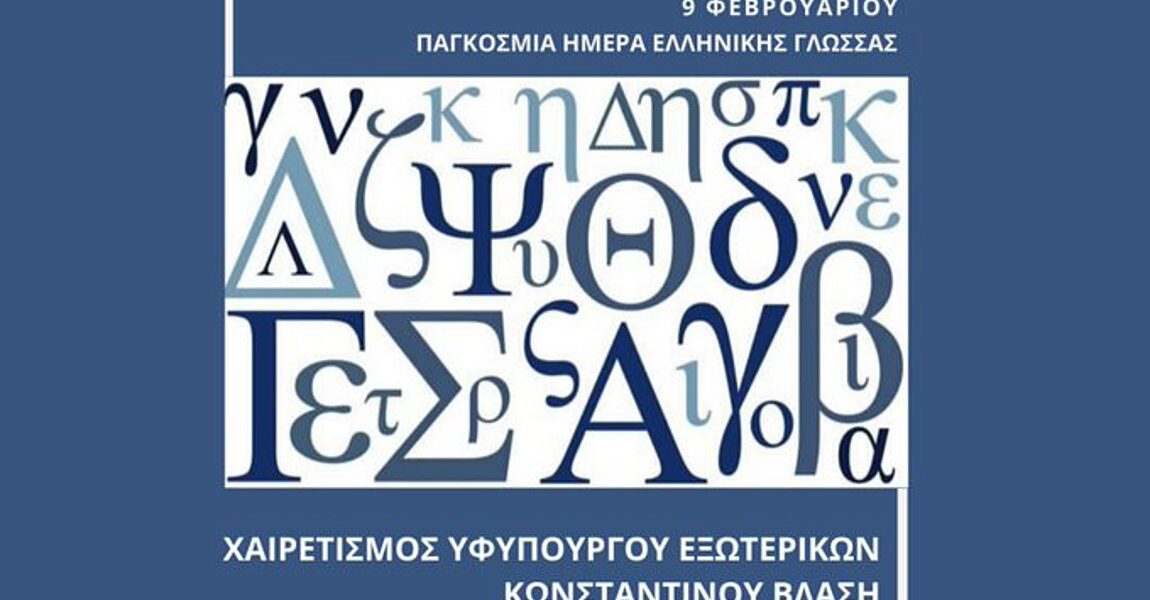Greece’s Deputy Foreign Affairs Minister and representative for Greeks Abroad, Kostas Vlasis, has issued a message on the occasion of International Greek Language Day, which you can read here-
The day of celebration for the Greek language is not only a reminder of the uninterrupted continuity of our language in time, but also a recognition of its timeless contribution to the world.
The Greek language is more than five thousand years old, in its early Greek form, from around 3000 BC to today. Despite its many adjustments over the centuries, it is the thread that connects the moments of thousands of years in a single historical timeline.
Its historicity travels so far back in time that it is unquestionably attributed to the scepters of the language that codified, such as superior lexical references to both abstract and technical concepts which established universal values and shaped the conceptual culture.
According to the French academic and Hellenist Jacqueline de Romilly: “If Greece asked us to remove from our language the Greek words it lent us, Western civilisation would collapse.” This legacy is an unshakable multiplier of mild but structural power for our country.
The Greek language is a feeling. It is inextricably linked to the Greek national identity, the heart and mind of the Greeks, who in their words, discovered the magic of expressing their rich, vibrant world. In their words, they found a way to establish themselves in time and to create.
The Greek language is a poetic language. Greece is rightly remembered over time for the two Nobel Prizes awarded to it by Georgios Seferis and Odysseas Elytis, who sculpted words in a unique way. It is the language of Dionysios Solomos, who gave us our National Anthem ‘Hymn to Liberty.’
Honouring the memory of our national poet every year on February 9, we remember his words: “I have no other thing in my mind, than freedom and language.”
His excellent knowledge of Italian and his long stay in Italy did not stand in the way of narrating his aesthetic, linguistic and experiential course in Greek. A story which left its mark on the birth of modern Greece. The millions of Greeks and many Philhellenes in every corner of the earth today, are a living example of its incomparable charm.
The characteristic, however, which makes our language unique, is that it is an attitude of life. The Greeks, in their attempt to interpret the world, created words which have the capacity to give meaning to existence, to lead to the realisation of the real, the existing, but also the transcendent. Words that accurately convey self-existent concepts, ideas and values- democracy, philosophy, dialogue, hard work. This characteristic runs throughout the Greek language throughout its historical historical course.
Through the Greek Language, the language of the Gospels and the Patriarchal Texts of the Church, the universal message of Truth, Faith, Love and Peace was spread and continues to be spread to this day.
“From the time Homer spoke until today, we speak, breathe and sing the same language,” writes Georgios Seferis, simply and vividly describing the timelessness, the emotional richness and the attitude towards life and essence, as reflected in the Greek language. Its teaching is the duty of all of us for the preservation and dissemination of Greek Culture.


